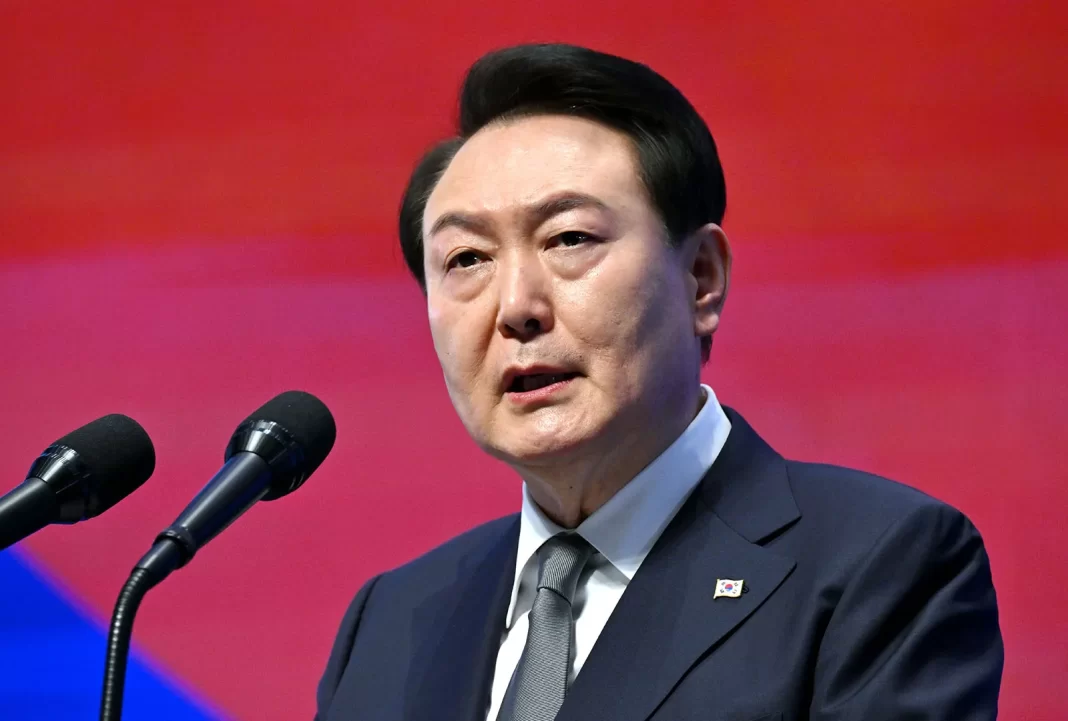South Korea recently witnessed a dramatic political episode when President Yoon Suk Yeol declared martial law. This controversial move lasted just six hours and ended in failure. The hasty and poorly planned operation has left South Korea’s political and military leadership in disarray, raising critical questions about the country’s stability and democratic resilience.
A Chaotic Attempt at Martial Law
The president’s martial law declaration aimed to tighten his grip on power during a political crisis. It included shutting down parliament, controlling the media, and limiting protests. Special anti-terror forces were dispatched to seize critical buildings like the National Assembly and the election commission.
The plan was fraught with issues from the start. Poor communication and coordination between military leaders and martial law commanders caused delays. For instance, transport helicopters carrying the special forces were blocked from entering restricted airspace, resulting in a significant delay. This allowed lawmakers to regroup and vote against the martial law decree.
Military’s Hesitant Response
The South Korean military, known for its readiness due to the constant threat from North Korea, seemed unprepared and unwilling to enforce the president’s orders. Many senior officers were reportedly unaware of the full scope of the martial law plans. Troops deployed to strategic locations, including the parliament, election commission, and media buildings, acted cautiously.
Key operations were limited in scope. Troops confiscated phones from election officials and tried to block access to key buildings. Yet, mainstream media continued broadcasting, and opposition leaders were not arrested. This half-hearted execution reflected the military’s hesitance to fully support the president’s controversial move.
Lack of Broader Support
One critical flaw in the martial law attempt was the lack of preparation and support among South Korea’s senior military leadership and allies. The president did not notify the United States, which has 25,000 troops stationed in South Korea. This omission highlighted a breakdown in communication with a key ally.
The president’s closest advisers, known as the “Chungam faction,” confined the operation within South Korea to their small group. These individuals played key roles in the plan, but their narrow focus and rushed actions undermined the operation’s success.
Public and Political Backlash
The failed martial law declaration has plunged South Korea into political turmoil. The president now faces severe consequences, including the possibility of impeachment or legal action. Critics have called the attempted power grab a “self-coup” that endangered the country’s democracy.
South Korea’s public has reacted strongly to the event, with many praising the military’s reluctance to fully carry out the orders. The episode has sparked debates about the need for clearer protocols to prevent similar crises in the future.
Historical Echoes and Sobering Questions
The failed attempt at martial law has drawn comparisons to South Korea’s past. In 1979, a military coup led by General Chun Doo-hwan resulted in eight years of authoritarian rule. While the recent attempt did not succeed, it has raised concerns about how close the country came to a repeat of history.
The deployment of troops, even in a limited capacity, has led to important questions. Was this event an isolated failure, or does it reveal deeper vulnerabilities in South Korea’s democratic framework? What safeguards are in place to prevent such actions from gaining momentum in the future?
Democracy Prevails, but Challenges Remain
South Korea’s democratic institutions ultimately withstood the test posed by the failed martial law attempt. Lawmakers acted quickly to overturn the declaration, and the military’s hesitance helped avoid a full-scale crisis.
This episode has left lasting scars on the country’s political landscape. The president’s actions have shaken public trust, while the military’s hesitant response has exposed gaps in preparedness and communication. Moving forward, South Korea must address these issues to strengthen its democratic resilience and prevent future attempts to undermine its constitutional order.
South Korea’s recent political drama underscores the fragility of democracy even in a well-established system. While this crisis ended without bloodshed, it serves as a stark reminder of the importance of vigilance in protecting democratic values.

